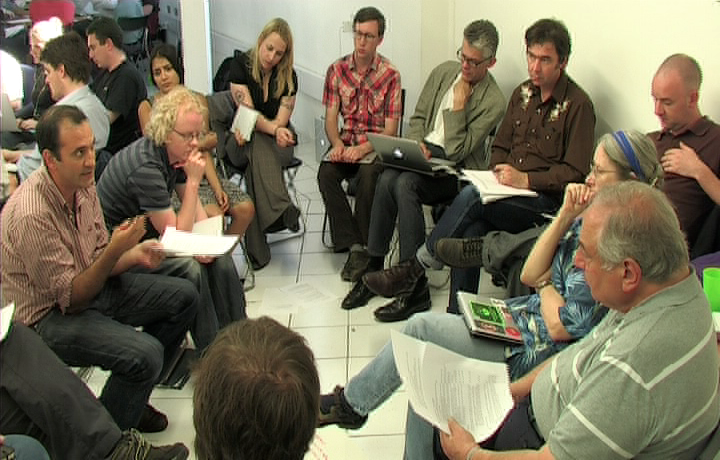Open Data Community Demands a Real Debate on Public Data Corporation

You can find the documents for the consultations we covered in the links below:
Making Open Data Real, which looks at the overall policy framework for open government data, but with a focus on opening frontline public services such as health and education.
Public Data Corporation, which is a proposal to bring together “trading funds” that sell public sector information, such as Ordnance Survey and Met Office, in order to streamline business processes and attract private investment.
We will be incorporating the feedback from the workshops in our responses to the consultations, but these are some of the key issues that emerged:
Public Data Corporation:
- Consultation seemed to already provide the answers, participants were displeased at how the options appeared to present false choices and little actual consultation.
- Many participants complained about the lack of economic evidence in general, but in particular for refusing to consider a free open data model.
- The basic data held by OS, Met Office, is absolutely about data infrastructure, and must be free to enable the rest of the Open Data and transparency agenda. Value added data services could carry on being sold as now.
- Private investment in production of raw public sector information is seens as fundamental problem.
- The Freemium option and vague commitments to increase open data introduced in the consultation are seen as fig leafs, and not having any real impact.
- While streamlining data prices and licenses may be an improvement for commercial organisations dealing with trading funds, it has nothing to do with open data.
- It is fundamentally incompatible with the other consultation, the Open Data Principles endorsed by government — and every other commitment made by Cameron, the coalition, the Cabinet Office, the Communities and Local Government dept, etc.
- Right to Data must also cover the type of data under the PDC. People are very aware of the conflict between the Cabinet Office and BIS, but this is not an excuse.
- The status quo is also unsatisfactory, so we should not let a rejection of the PDC become an excuse for another decade of trading funds and closed data. Reform is necessary, but not this way. People want a true debate on the PDC.
Making Open Data Real
- It has some good elements but it is too complicated and could have kept to simple values and principles already built into policy, such as the Open Data Principles.
- Putting too much emphasis on costs and the economic case could jeopardise the transparency agenda if the benefits fails to materialise. The figures in the paper may be over-optimistic.
- It is good to focus on frontline services because these affect peoples lives directly, but this should not divert from fundamental ministerial transparency.
- It presents a confusing and potentially dangerous mix up of open data, big data and privacy sensitive individual data. This is particularly the case in the economic arguments.
- Private personal data was seen a red line, but the issues were not discussed in detail, although not due to lack of interest. Open data privacy is perceived as a very complex technical issue.
- Concerns about who and how decides what is “data that matters”, and how this can change over time.
- A few people were also concerned about the implications of aligning open data so explicitly with the marketisation of public services.
- The implications for existing Freedom of Information were discussed and more clarity and safeguards may be required to avoid loopholes that would reduce effective access by citizens.
Open data policy generally lacks the excitement and sense of urgency of defending Internet users against disconnection, or fighting land grabs on the public domain from copyright term extensions. Nobody tends to argue against transparency and access to data in contemporary politics, so data policy becomes a battle over shades of gray and sooner rather than later.
This time however, there is genuine anger and bewilderment at the u-turn by government on its commitments to open data. There were also critical words towards the Transparency Board in several of the discussion groups as to why it is not speaking out against the PDC. ORG is consulting the community on proposals for how to increase the participation of civil society in the board.
We agreed that Open Rights Group will focus our campaigning efforts on the PDC, while encouraging everyone to respond to both consultations. Watch this space, the deadline for responses is the 27th of October, so there is little time.
We want to thank the Centre for Creative Collaboration and the Open Knowledge Foundation for their help.
